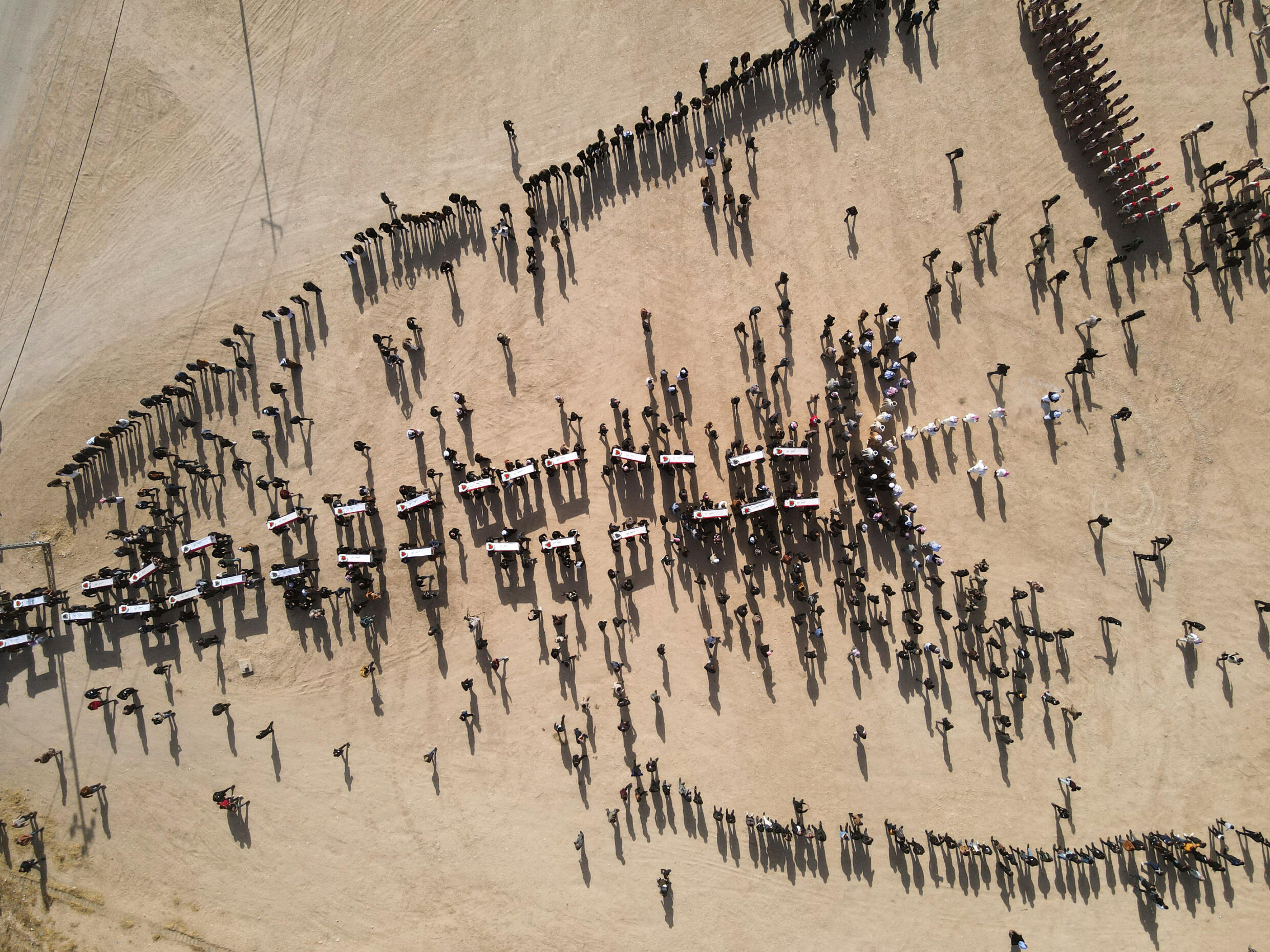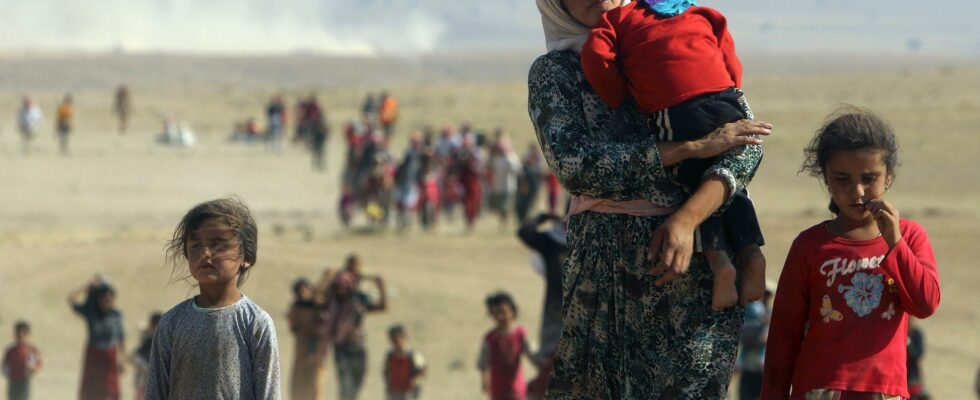Ten years ago, on August 3, 2014, the Islamic State invaded the Sinjar region in northern Iraq and committed genocide against the Yazidi population. Atrocities that still mark the community today.
1 min
The Yazidis are a Kurdish-speaking ethnic and religious minority. Their traditions and religion have earned them many persecutions over the centuries. On August 3, 2014, after proclaiming their caliphate, with Mosul as its capital, fighters from the Islamic State organization launched an offensive on the neighboring region of Sinjar, the birthplace of the Yazidi community.
The city of Sinjar is besieged, 3,000 people are killed, executed or starved to death. Another 6,500 are kidnapped. Women and girls are reduced to sexual slavery, boys are recruited as “lion cubs of the caliphate”. Some women will be freed before or after the end of the caliphate in 2019.
2,600 Yazidis are currently missing. A large number are believed to be in northeastern Syria, in detention camps for members of the Islamic State organization. Many mothers are afraid to report themselves. Their children born to an Islamic State man are systematically taken away from them. The community rejects any non-Yazidi union or descendants.
The town of Sinjar lies in disputed territory between Baghdad and the Kurdish region. It has therefore never been rehabilitated and many Yazidi families still live in tents.

You survived a genocide, people disappeared and you don’t know anything about them. It creates real depressions. I stayed in the tent doing nothing, I had to find a hobby…
A library to bring Sinjar back to life
Read alsoIraq: Ten years after the genocide, a New Year filled with emotion for the Yazidis
